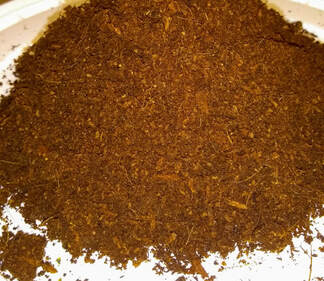|
Coconut Coir is something that's popped up in more and more organic gardening conversations in recent years. It's also a popular growing medium for hydroponic gardening. But what is it, and how can it help your garden grow? The folks at Epic Gardening have a fantastic write-up on coconut coir, from its origins to all of the great benefits of using it. First, we need to understand what coconut coir actually is.  So when it comes to adding coco coir to your garden soil, how much should you use? For starting pots and raised beds, we'd recommend a 1/3 - 1/3 - 1/3 mix of screened topsoil, compost and coco coir. Basically, equal parts of soil, compost (either vermicompost or traditional compost) and coir. This will give your soil a great foundation for holding moisture as well as nutrients, while remaining light enough for air and roots to move freely.
0 Comments
Your comment will be posted after it is approved.
Leave a Reply. |
